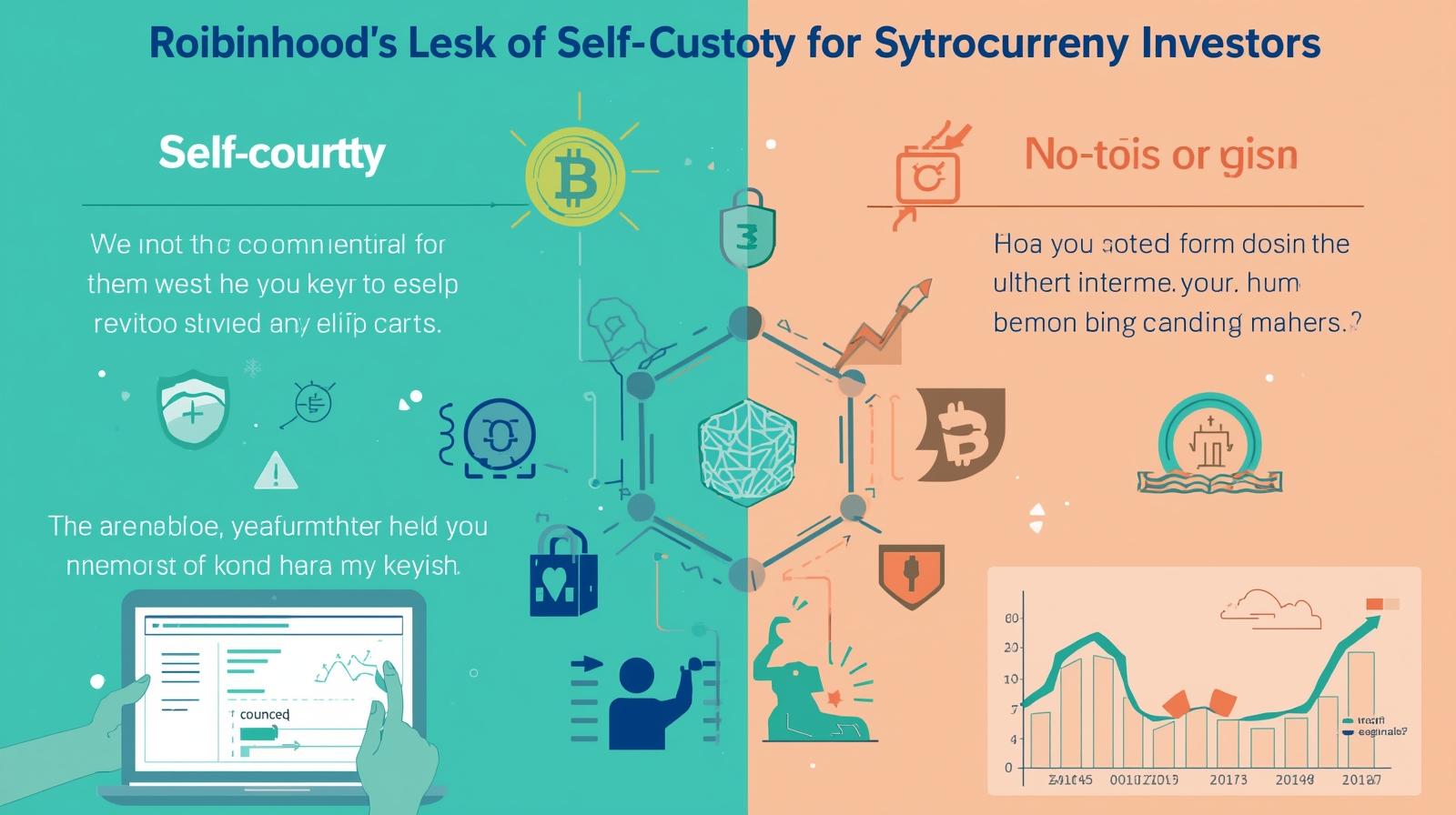
When you think of buying Bitcoin or Ethereum, you probably think of convenience. Apps like Robinhood have made it incredibly easy to tap a button and own a slice of the crypto market. But here’s the crucial question many new investors don’t ask: When you “buy” crypto on Robinhood, do you actually own it?
The short answer is no, not in the way the crypto ecosystem intended. While Robinhood offers a user-friendly gateway, it functions very differently from a true cryptocurrency exchange because of one fundamental principle: self-custody.

What is Self-Custody? “Not Your Keys, Not Your Crypto“
In the world of blockchain and digital assets, true ownership is proven by control. This control is exercised through cryptographic keys:
- A Public Key is like your account number—it’s your wallet address where people can send crypto.
- A Private Key is like the key to a safety deposit box. It’s a unique string of letters and numbers that proves you are the owner and allows you to move your assets. Whoever holds the private key controls the crypto.
Self-custody means you, and only you, hold your private keys. You might use a software wallet (like MetaMask or Trust Wallet) or a hardware wallet (like a Ledger or Trezor device). This is the core ethos of cryptocurrency: decentralization and personal responsibility.
How Robinhood Handles Your Crypto
Robinhood operates a more traditional, custodial model that will feel familiar to stock traders:
- You Place an Order: You use the app to buy $100 of Bitcoin.
- Robinhood Buys It: Robinhood purchases the Bitcoin on your behalf and holds it in their massive, omnibus wallets.
- They Hold the Keys: All the private keys for all their customers’ crypto are controlled by Robinhood.
- You See an IOU: Your Robinhood account balance reflects your share of that large pool of crypto. You own the value, but you do not own the specific underlying asset.
In this model, Robinhood is the custodian. They are responsible for securing the assets, which they do quite well. But this setup means you are trusting them completely.
The Trade-Off: Convenience vs. Control
This isn’t to say Robinhood’s model is all bad. It offers significant benefits, especially for beginners:
- Simplicity: No need to manage complicated wallet addresses or private keys.
- Integrated Experience: Seamlessly trade crypto alongside stocks and ETFs in one app.
- No Gas Fees: Robinhood doesn’t charge network fees for transactions on its platform (though it makes money from the spread).
However, this convenience comes at the cost of control:
- You Can’t Truly “Use” Your Crypto: The crypto you “own” on Robinhood is trapped within their ecosystem. You cannot send it to another person’s wallet, use it to purchase an NFT, provide liquidity to a DeFi protocol, or participate in airdrops and staking on other networks.
- Counterparty Risk: You are exposed to risk from Robinhood itself. While unlikely, if the platform were ever hacked, faced severe regulatory action, or froze accounts, your access to your crypto could be jeopardized. The old adage rings true: “Not your keys, not your crypto.”
- Limited Transparency: You cannot independently verify your holdings on the blockchain. You must trust that Robinhood’s internal accounting is correct.
Robinhood vs. True Crypto Exchanges: A Quick Comparison
| Feature | Robinhood (Custodial Broker) | True Exchange (Coinbase, Kraken, Binance) |
| Self-Custody | ❌ No. They hold your private keys. | ⚠️ Optional. They custody by default but allow withdrawals to your own wallet. |
| Send/Receive Crypto | ❌ No. You can only buy/sell within the app. | ✅ Yes. You can deposit and withdraw to external wallets. |
| Use Cases | Buying, selling, holding. | Buying, selling, holding, spending, staking, DeFi, NFTs. |
| User Control | Low. You rely on the platform’s rules. | High. You decide where and how to use your assets. |
So, Is Robinhood Right For You?
Robinhood Crypto serves a specific purpose:
- You’re a complete beginner just looking to gain simple, speculative exposure to crypto price movements without the technical complexity.
- You only want to buy and sell crypto as you would a stock, with no intention of using it as a currency or on decentralized applications.
However, if your goals are to:
- Truly understand and participate in the crypto economy.
- Hold your own private keys and be your own bank.
- Use cryptocurrencies for their intended purposes beyond speculation.
Then you should consider using a true cryptocurrency exchange that allows you to withdraw your assets to a self-custody wallet.
The Bottom Line: Knowledge is Power
Robinhood is not a true cryptocurrency exchange; it’s a custodial brokerage service for crypto. It offers a fantastic on-ramp for new investors but fundamentally contradicts the principle of self-sovereignty that Bitcoin and other cryptocurrencies were built upon.
Understanding the difference between custodial and non-custodial services is one of the most important first steps any crypto investor can take. It empowers you to choose

